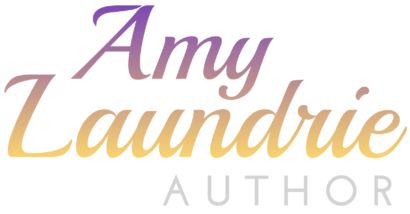My father was a quiet man and never gave long explanations. When I was about 10-years-old, he pointed to our old red Farmall tractor and told me to drive it into the shed. In the past I’d stood behind him on the draw-bar and looked over his shoulder. I’d seen him working the pedals, but I worried about my ability to manage the clutch. I was so focused on that and how I had a chance to make my father proud of me, that I jumped on without thinking everything through. I was able to start the tractor and engage the clutch with only a few jerks. As I steered toward the shed, though, I suddenly realized I didn’t know how to stop.
Too late to avoid entering the shed, I drove into it. The tracker hit the far wall. It bounced back, and hit the wall again.
Dad ran in, hopped on, reached over and turned off the key.
He didn’t scold me nor did we talk about how we probably should have gone over a few things before I started out. Dad simply gave me a sideways glance, his arched eyebrows raised in a look that told me, “Really daughter? You stood beside me all those times and never paid attention to how I braked or stopped?”
My aunt was young, maybe around eight, when she had a similar experience with my dad. He took her night smelt fishing. The pier extending out to Lake Michigan was lively with fishermen. Many of the men and women on the pier were unwinding from the work day, having a beer or two, and visiting. My dad had to return to the car for something, so he pointed to the rope and pulley system and told my aunt to keep fishing. “Just pull up the net,” he said.
Dad left. After a few minutes, she pulled on the rope. The square-shaped net rose from the water. It was filled with smelt. They flopped about, their scales shimmering in the lantern light. She admired the fish, and after awhile, she lowered the net.
When Dad returned, she told him about all the smelt. Dad walked over and peered into the 5-gallon pail. Empty. He never questioned why she hadn’t scooped out the fish, but his creased forehead and half-grin showed his thoughts. Much is told in silence.
My husband was also a victim of Dad’s sparse communication skills. Dad showed Frank his salmon smoker, an old converted refrigerator, and told him how he soaked them overnight in a brine and smoked them with apple or maple wood for a touch of sweetness. Frank listened with interest but was taken aback when Dad said, “I have to work tomorrow, and I have a salmon that needs to be smoked for a guy’s family wedding. You need to do it.”
Frank and I weren’t yet married, and he wanted to impress my father. He sensed this was a test of sorts, and wished he’d listened better. Frank tried his best. When my father re-turned from work, he inspected the fish. He gave Frank a single nod letting him know he ap-proved. Much is told in silence. Frank and I became engaged shortly after and had Dad’s bless-ing.
Dad said very little, but he also never complained or cried out in pain. I was with him trout fishing in Tigerton when he stepped into a nest of ground bees. I knew from his slapping and running that he was getting stung, but he never uttered a word. I only later realized the ex-tent of his injuries when I saw all the welts covering his arms, neck and face.
Likewise, I was with him when he foolishly opened a car’s radiator cap. Hot steam erupted burning his arms. Later, after the blisters had formed, it occurred to me he’d never ut-tered a sound, not even a whispered cuss word.
I only recall hearing my father swear once. He and my brother, probably age ten, had a confrontation while we were hiking at a remote campground bordering a lake. Even though we were far from our campsite, my brother called he was walking back alone. He took off through the woods.
We returned to camp. My brother wasn’t there. An hour passed in worry. My mother, now panicked, said she’d search the woods. Dad and I got in our boat to scan the shoreline.
The lake had hidden stumps. We hit one and sheered the pin on the motor. Dad fixed it, and we continued our search. When we sheered a second pin, Dad let out a four-letter word. I knew then this was serious, and I was terrified. I was sure my brother was lost forever.
We continued on in silence and never spotted him. With dusk falling, we returned to our campsite. He was there and greeted us sheepishly. “I don’t know why you were out looking,” he said. “I knew how to get back. I just followed the lake around.”
My father glanced at my mother and then my brother. He didn’t utter a word, but we felt his smoldering anger to have wasted so many hours, and we also felt his relief. Much is told in silence.
At age 55, my quiet father received devastating health news. The doctor diagnosed him with advanced colon cancer. Silence enveloped him, and he never shared any of his fears with me. But I saw his ashen face, his pained expression and felt his regret to have to leave this earth so soon. Without saying a word, we gave each other a long hug. And in those final moments, we both shared our feelings. For much is told in silence.

